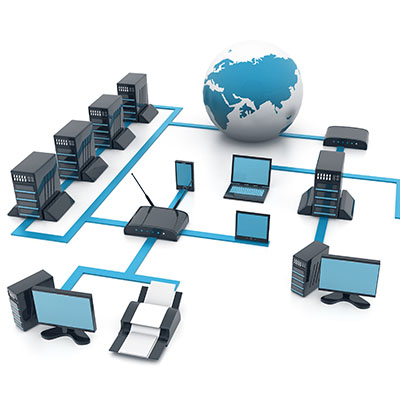You might have noticed the mobile technology around you, like smartphones, tablets, and wearables, getting noticeably stronger in recent years. As their strength increases, so too does their power expenditure, demanding more effective batteries and charging technologies as a result. Today, we want to look at the ever-fascinating topic of batteries for mobile technology and how innovations can help to fuel change in device design.
Secure and reliable file sharing has become essential for businesses. It makes collaboration, communication, and better productivity possible. With the increasing prevalence of cyberthreats, however, having a comprehensive plan to ensure the security of your files in transport is extremely important. Let’s explore some of the best practices for secure business file sharing.
All businesses use technology to varying degrees, typically to improve operations or offer innovation through a service or product. SMBs often benefit from the increased use of technology in the business world, as it’s generally quite effective at solving their problems and accessible enough that even companies on a budget can afford it. Let’s look at some opportunities your own business might have in 2024.
The four-day workweek is gaining traction among small businesses. It promises improved efficiency and increased employee satisfaction… but how can technology enhance this model? How can it help businesses reap the full benefits of a shorter workweek?
AI can have transformative effects on your business’ operations, provided you can navigate its various pros and cons. Today, we want to highlight some of the greatest benefits and disadvantages that AI poses for any business looking to implement it into its operations.
Managing a budget is difficult, let alone budgeting for something as complicated as your IT infrastructure. Even though IT is notoriously difficult to budget for, it still continues to grow as a priority for organizations. How can you ensure that your budget can keep up with the projected expenses of your IT in the next several years?
When evaluating your business assets, it’s essential to prioritize technology. Let’s briefly go into the reasons why this is important and explore effective management strategies your business can roll out to improve your operations.
With technology being such an important part of doing business, making the right calls on how to spend your IT budget is important. Before diving into any technology purchases, take a step back and assess your business’ specific needs. What are your goals, challenges, and pain points? Understanding these aspects will help you narrow down the technologies that truly add value to your operations. Let’s take a look at a few technologies that can help a business spend wisely on their IT.
Do you have the time to monitor your networks 24 hours a day, 7 days a week, 365 days a year? If not, you’re like every other business owner out there, and if you’re not monitoring your network, you’re potentially leaving it open to a lot more threats than you should feel comfortable with.
Microsoft is constantly innovating to maintain its status as one of the world’s largest and most well-respected technology companies. One of its prize projects is Copilot, an operating system-integrated artificial intelligence. In today’s blog, we’ll discuss some of the major changes coming to Copilot and how they can improve people’s lives at work and at home.










